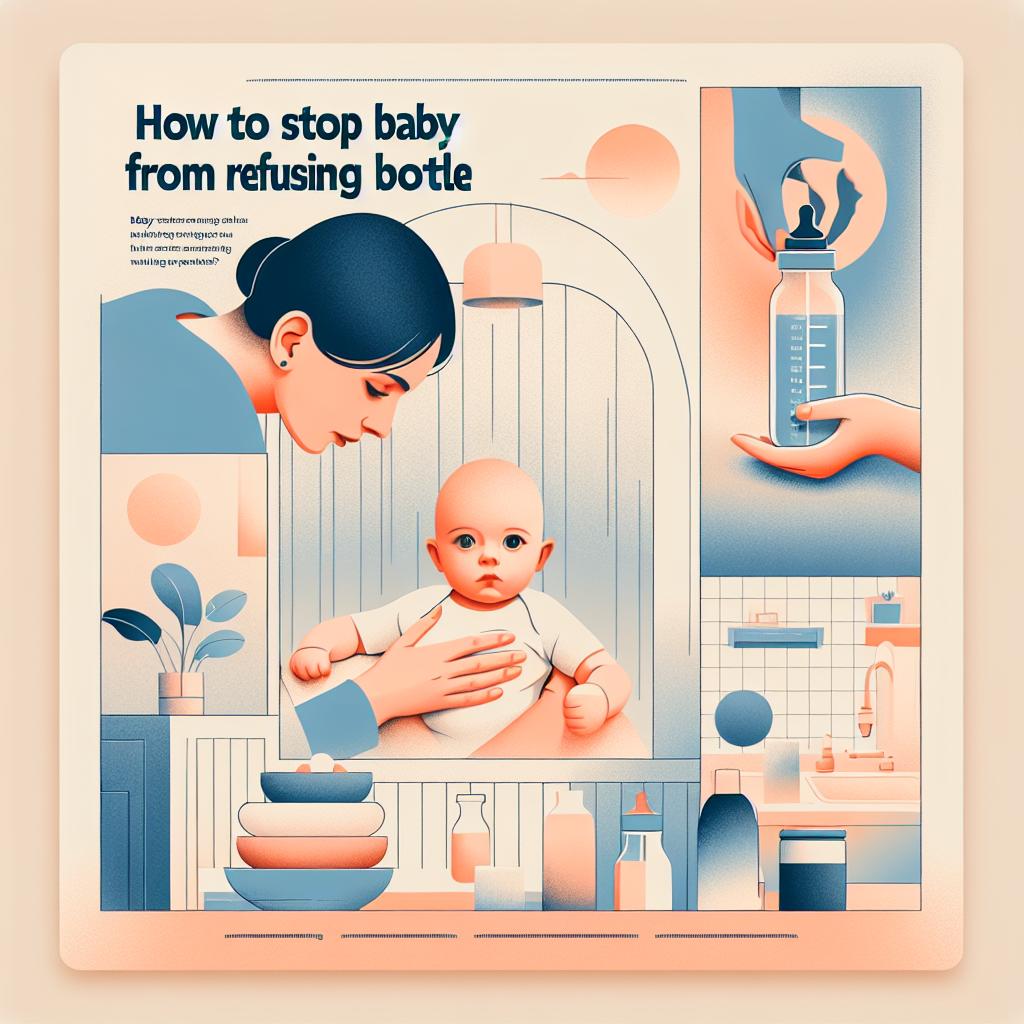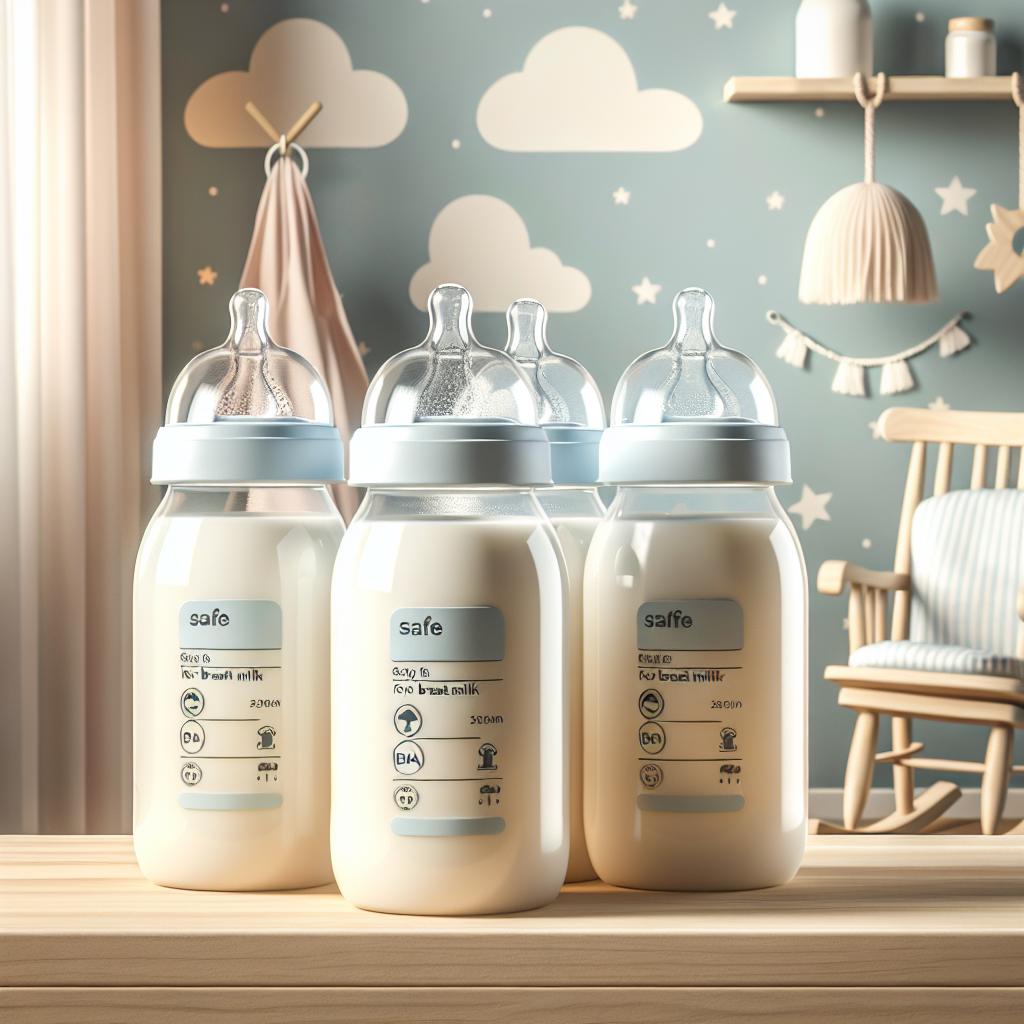Solutions for a Baby Who is Refusing the Bottle
When you’re a new parent, having a baby refusing a bottle can be a stressful event. It’s not uncommon for this to happen, but it can certainly throw a wrench into your feeding schedule. In this article, we will explore strategies to overcome bottle aversion and assist your baby in their transition from breast to bottle.
Understanding Bottle Aversion
Bottle aversion, or bottle rejection, is when a baby who usually accepts a bottle, suddenly starts to refuse it. It’s important to understand that this behavior is usually caused by some discomfort or pain associated with feeding from a bottle. It’s not about the baby being stubborn or picky; they’re simply trying to communicate that something is not right.
Common Reasons for Bottle Rejection
Before you can tackle the issue of bottle aversion, it’s helpful to understand a few common reasons why your baby might be rejecting the bottle:
- Teething: When babies begin teething, their gums can become very sore, making sucking from a bottle uncomfortable.
- Preference for breastfeeding: Some babies develop such a strong preference for breastfeeding that they refuse to take a bottle, especially if they are not used to it.
- Incorrect bottle size or nipple flow: If the bottle nipple is too large, small, fast or slow for the baby’s preference, they might refuse the bottle.
- Illness: If your baby is suffering from an ear infection or a cold, they may refuse the bottle as sucking might cause them discomfort.
Tactics to Overcome Bottle Rejection
Now, let’s discuss some tactics that you can use to help your baby accept the bottle:
- Offer the bottle before the baby is too hungry: A hungry baby can sometimes become frantic or impatient, making them more likely to refuse the bottle. By offering it when they’re calm, you can increase their acceptance of the bottle.
- Try different bottle types: Experimenting with various bottle types and nipple flows can help you find the one your baby is most comfortable with. There’s no one-size-fits-all answer here, as each baby has their own preferences.
- Introduce the bottle gradually: If your baby is used to breastfeeding, suddenly introducing a bottle might be too much change at once. Instead, start by introducing the bottle gradually, such as during one feeding per day.
- Get help from someone else: Sometimes, a baby might take a bottle more readily from someone other than their mother. So letting a partner, grandparent or caregiver try can make a difference.
Healthline also offers some additional strategies for dealing with a baby refusing the bottle. Expert lactation consultants at Rachel O’Brien IBCLC and The International Affiliation of Tongue-Tie Professionals offer valuable insights and techniques as well.
Remember that patience is key when dealing with bottle aversion. It can take time for your baby to adjust, so be patient and give them the opportunity to get comfortable with the new feeding method.
When to Seek Professional Help
If none of the tactics suggested above seems to be working and your baby is persistently refusing the bottle, it might be time to seek professional help. A pediatrician or lactation consultant will be able to offer professional advice tailored to your specific situation. La Leche League International has numerous resources available for breastfeeding mothers, including help with bottle refusal. Seeking help early can prevent unnecessary stress or worry and ensure that your baby is receiving adequate nutrition.
Handling a baby refusing the bottle can be challenging, but remember that it’s a common issue with various solutions. With patience, understanding, and a bit of perseverance, you’ll no doubt find a solution that works for both you and your little one.
Possible Medical Reasons Behind Bottle Rejection
While most reasons for bottle rejection revolve around teething, preference, or bottle type, there might be medical reasons for a baby refusing the bottle. Conditions such as acid reflux, tongue-tie, or oral thrush can make sucking painful leading to bottle aversion.
An infant with acid reflux experiences discomfort during and after feeding. In oral thrush, a yeast infection in the mouth may cause soreness. And tongue-tie, a condition where the tissue attaching the tongue to the floor of the mouth is too short, can make sucking difficult.
Identifying and treating these conditions early can resolve bottle refusal. The Beth Israel Deaconess Medical Center recommends a gradual transition
- Use a Sippy Cup: For older babies who are starting to use hands and fingers, a sippy cup can be a great transitional tool. Unlike a bottle, a sippy cup allows the baby to control the flow of milk.
- Skin-to-Skin Contact: Mimicking the closeness of breastfeeding, try bottle-feeding your baby while having skin-to-skin contact. The familiar experience can help them accept the bottle.
- Distract The Baby: Sometimes, distracting the baby with a toy or book while offering the bottle can work. Their focus might shift from the discomfort of the new bottle to the distraction, allowing for easier feeding.
Finding The Right Bottle for Your Baby
With the array of brands and bottle types in the market, choosing one can be overwhelming. Experts at the Feedeatspeak website suggest doing some research and getting recommendations from other parents or professionals. Understanding your baby’s requirements can also guide you in choosing the right fit for them.
A Change in Feeding Environment
Something as simple as a change in the feeding environment could help overcome the bottle aversion. Here are some creative ideas to make feeding time more interesting and enjoyable:
- Change of scenery: Try feeding your baby in a different room, or if the weather is nice, take them outside for a picnic-like atmosphere.
- Make feeding time fun: Sing a soothing lullaby, tell a story or even use puppets to entertain your baby while feeding them. The positive association might help with the bottle aversion.
Lastly, always remember to consult your pediatrician or lactation consultant before making significant changes to your baby’s feeding regime. It’s always better to be safe and informed when it comes to your baby’s health and well-being.






